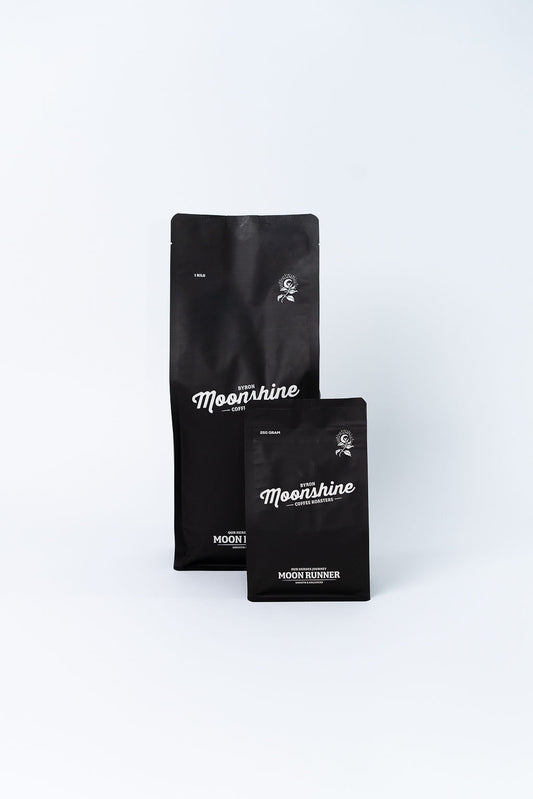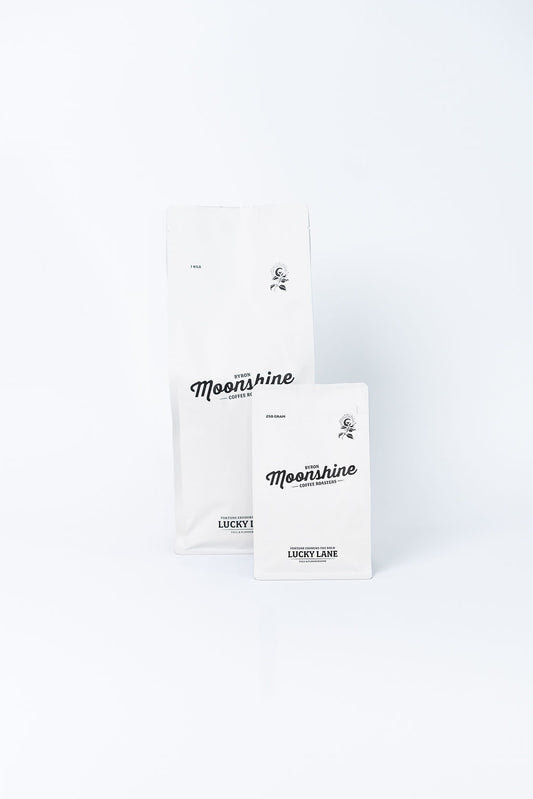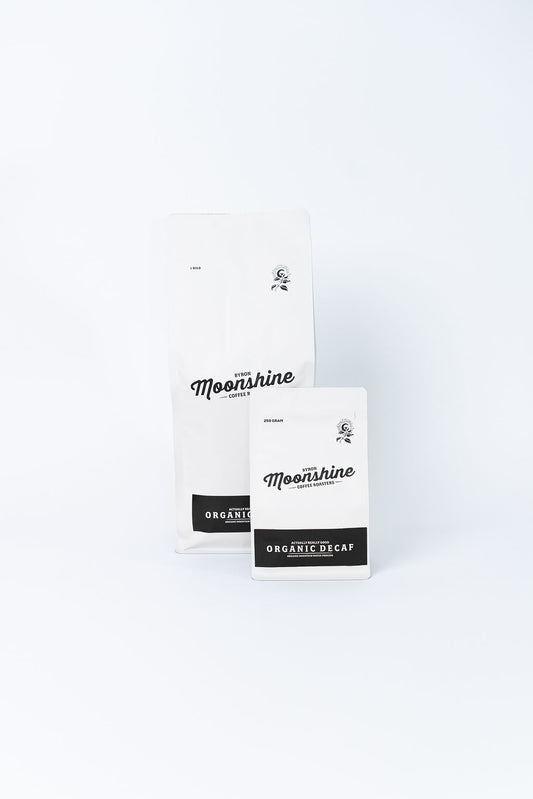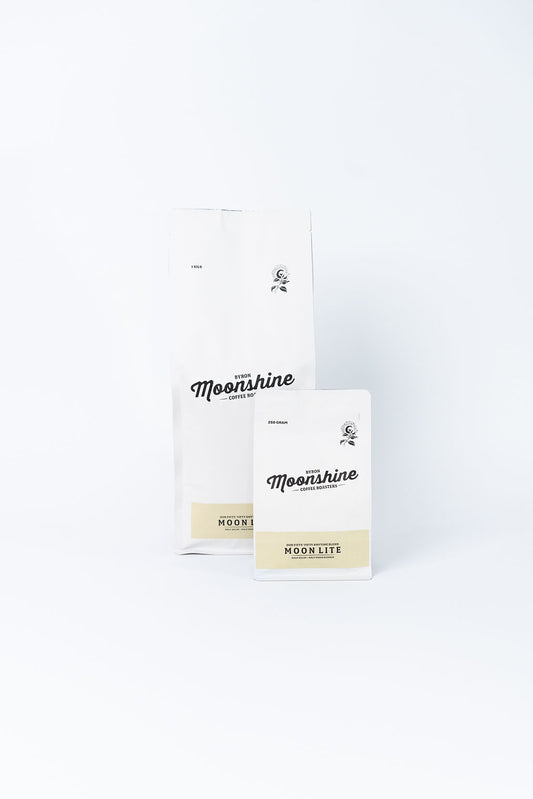Alternative Mylks
What are my mylk options?
There are a huge range of mylk products to try, with soy and almond are the most common mylks and the rise of coconut mylk with coffee has been the biggest change in recent years. We confess we haven’t yet tried them all, but here’s a list of options available at some Moonshine cafes:- Cereals: oat, rice, corn or spelt
- Legumes: soy, peanut, lupin and even cowpea
- Nuts: almond, cashew, coconut, hazelnut, pistachio, walnut and macadamia
- Seeds: sesame, flax, hemp or sunflower
- Grains: quinoa or amaranth
Whatever the source, mylks are manufactured from either whole or powdered ingredients that are soaked and then blended and strained. Many products are fortified with minerals and vitamins to mimic the nutritional profile of dairy milk, and may have added thickeners, oils or gums to achieve a dairy-like mouthfeel.

Y all the commotion about a vowel?
In the US and Canada, it’s illegal to label dairy alternatives as milk. Australia’s labelling standards are currently being reviewed, but if you describe the product clearly, it’s still okay to use the word milk for non-dairy liquids like soy milk.The big deal with names is that vested interests in the dairy world get upset when you use ‘their’ word for non-dairy alternatives. And, maybe it is best for plant-based mylks to have a different letter in their name. After all, liquid made from plants is not the same as a mammary secretion.
So, we’re running with ‘mylk’ because it helps us spot the difference between dairy and non-dairy. And it’s cool!
Are there benefits of switching to mylk?
One reason alternative mylks have become so prevalent is growing awareness of the health impacts of ingesting large amounts of dairy products in already rich diets. And the environmental impacts of running dairy herds, which release methane, means that avoiding dairy is seen as an easy step towards reducing greenhouse gas emissions.Plant mylks can have a dark side too, as when any crop is produced in mass quantities. Coconuts are often seen as being exotic and healthy but, in regions like the Philippines and India, coconut production is negatively affecting land use and labour conditions by displacing subsistence crops, and low pay and poor conditions for workers.
Crops like rice and almonds require extraordinary amounts of water for production. Almond, coconut, pistachio, walnut, and rice mylks have very high food miles as they are often produced and packaged overseas, then shipped to Australia as finished goods.
Looking out for Fair Trade products is an easy way to ensure that workers and the environment are treated fairly.
Can I make my own mylk?
Making your own plant based mylk at home is easy if you are willing to put in the time and effort. Soak your ground plant product in cold water (four parts liquid to one part solid) for at least two hours or overnight. Once you’ve blended and strained the liquid through a muslin cloth: there's your mylk!

Which goes best with my coffee?
As with all food products, fresh is always best.
“If a café is making its own nut or seed mylks, jump at the chance to try what’s on offer,” advises Byron Moonshine’s James Neate.
For example, Punch and Daisy use a mix of almonds and cashews to achieve a tasty balance of body and flavour. Josh from Made Barber and Barista at their busy beachside café in Tugun, QLD, says oat mylk is by far their biggest seller. “It goes well with Moonshine coffee, letting the coffee speak for itself by not dominating with other flavours,” he says. “From a barista’s perspective, it’s easy to work with and textures to a creamy, silky consistency.”
Josh always encourages regulars to try something new. “We’ll walk you through the different types of mylks available to find one to try,” he says happily.
Maybe an oat mylk latte will be your new regular order? You never know what mylk you might like.












